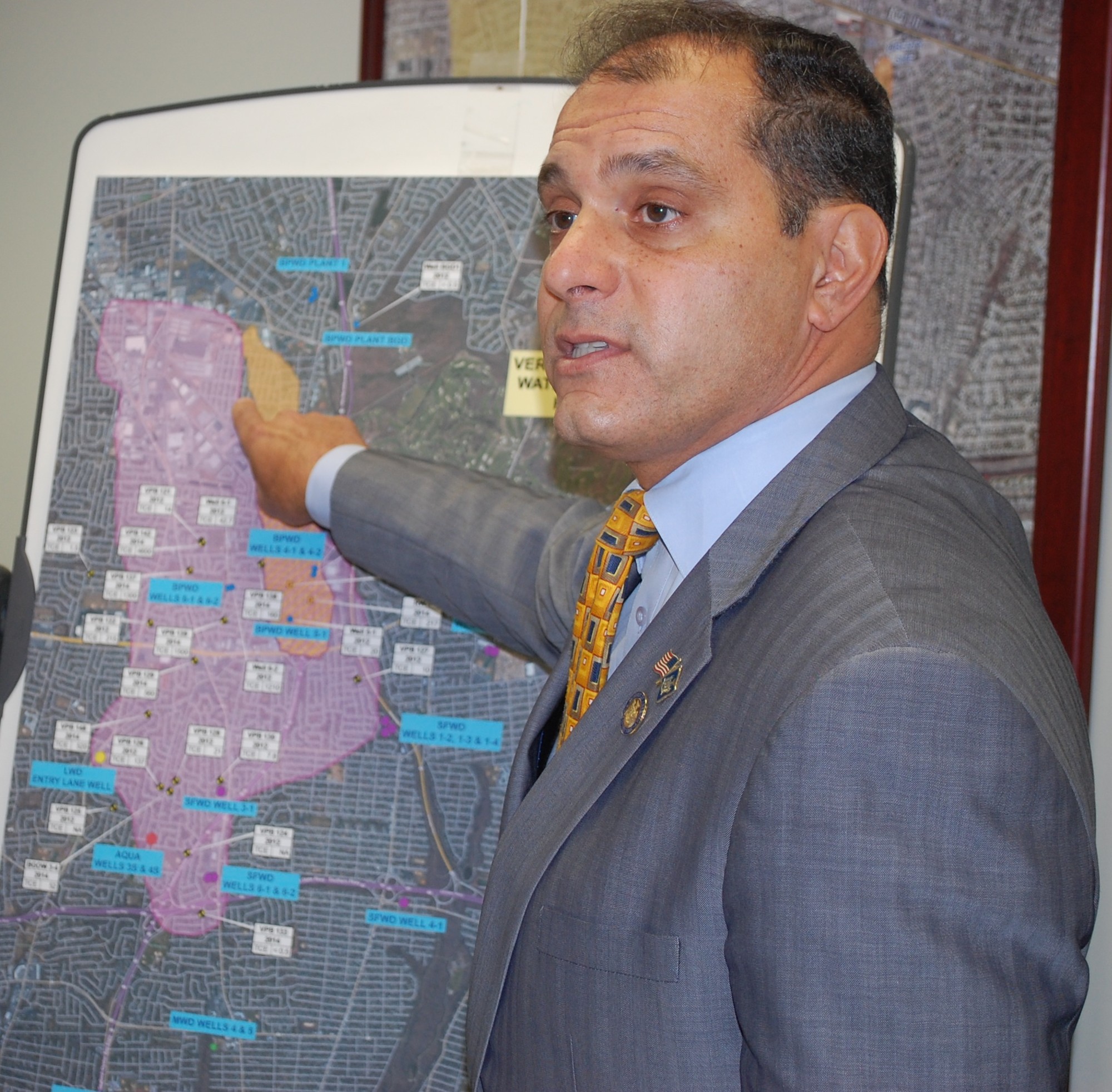Governor orders plume cleanup
New York state took a major step forward in ensuring safe drinking water for Wantagh and Seaford residents recently, when Gov. Andrew Cuomo signed a bill ordering the cleanup of the toxic Navy Grumman plume.
Cuomo signed into law on Dec. 29 a bill that had already been passed by the Assembly and Senate. It mandates that the state Department of Environmental Conservation put into place a plan to hydraulically contain and remediate the underground plume before it spreads any further south.
The flow of underground toxins has already reached the area of North Wantagh Park, just south of the Southern State Parkway, and has forced the construction of several water remediation plants, including at the South Farmingdale Water District’s well on Route 107 in Seaford. If the plume were allowed to continue, it would likely reach more drinking sources in Wantagh, Seaford and Massapequa, and possibly spread to the Great South Bay.
The bill was sponsored by Assemblyman Joseph Saladino (R-Massapequa). “It’s ridiculous to let the plume continue to affect uncontaminated areas,” Saladino said, adding that Cuomo’s signature signals a victory after Saladino and others fought for this for several years.
The plume, discovered in the 1980s at the Grumman site in Bethpage, is the result of military aircraft manufacturing there during World War II, when chemicals used in the manufacturing process drained into the soil. In 2000, the plume was at Hempstead Turnpike, and three years later it reached Boundary Avenue. By 2012, it passed the Southern State.
Saladino said that passage of the bill will protect drinking water for generations to come, and that a plan would now be put together to stop, contain and eventually remove the plume. The top experts on Long Island will work with the DEC, he added.
In the short term, the plan will stop the plume in its tracks and keep it from contaminating any more areas. Long term, Saladino said, the plume will be removed through a remediation facility that would have to he built. It would likely be constructed at the former Grumman site, but a location has not yet been chosen.
Saladino stressed that despite the plume, water remains safe to drink because of the proactive approach of water districts to construction remediation facilities at their wells. The passage of the bill is good news for American Water, which serves most of Wantagh and Seaford, and the Massapequa Water District. Officials there will no longer have to plan for the possibility of costly treatment plants.
Peter Eschbach, a spokesman for American Water, said that although the plume was years away from reaching its wells, it still remained a concern for the water company. “We’ve been monitoring the situation,” he said. “The plume’s been moving slowly, as groundwater typically does.”
Sen. Kemp Hannon (R-Garden City) sponsored the bill in the Senate. “It’s necessary for the residents of Nassau,” he said, “and the signing is due to the tenacity of Assemblyman Joe Saladino.”
Adrienne Esposito, executive director of Citizens Campaign for the Environment, has been advocating for the passage of the bill. She was concerned that the Navy and the DEC, which were not in favor of it, would be powerful enough to stop it.
“We’re very excited,” she said. “This is critical to the long-term protection of public health and our water resources.”
Phil Franco, president of the Seaford Harbor Civic Association, was also pleased. He was concerned about the plume eventually reaching the southern part of Seaford and entering the bay.
Franco noted that some of the chemicals in the plume, such as TCE, are very dangerous and can affect the human nervous system. He also said that expert predictions that the plume would eventually dilute proved to be untrue.
“Water is the most important thing,” he said. “It’s the most precious thing on Earth.”
The cost of the project, which could be upward of $500 million, would be covered by Grumman and the U.S. Navy.

 47.0°,
Overcast
47.0°,
Overcast 




